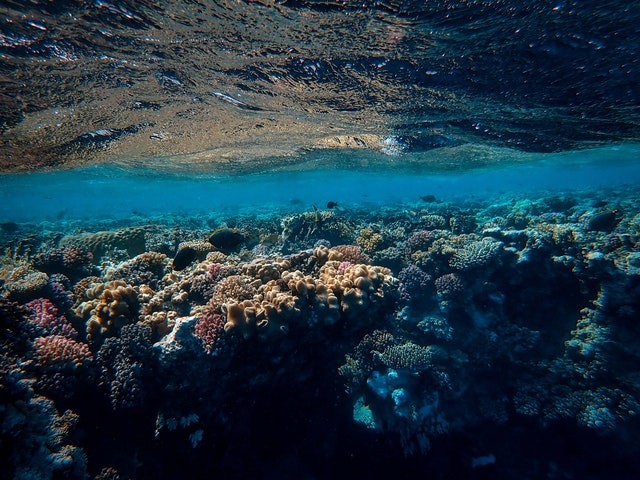Researchers from the Rosenstiel School of Marine and Atmospheric Science at the University of Miami (UM) discovered that corals that were subjected to a stressful temperature treatment in the laboratory for 90 days were more resistant to higher water temperatures.

Stress-hardening Experiments Conducted on Corals
As ocean temperatures continue to rise, more coral bleaching episodes are occurring, which could lead to an increase in the success rate of planting nursery-raised staghorn coral on deteriorated reefs, as per Phys.org.
Species of Staghorn Coral, Acropora cervicornis, are categorized as "threatened" under the Endangered Species Act due to their rapid decline in South Florida and the Caribbean.
Researchers from the UM Rosenstiel School of Marine and Atmospheric Science conducted "stress-hardening" tests on corals using a long-term, varied treatment where temperatures reached a stressful level twice each day.
One of the study's authors, PhD student Allyson DeMerlis of the University of Maryland Rosenstiel School, described the "training" program as similar to that of an athlete in preparation for competition. Increasing the corals' resistance to heat stress was one of the goals, and it was successful.
Experimental Findings
Experimenters from UM's Rosenstiel School's Rescue a Reef coral nursery and the NOAA Atlantic Oceanographic and Meteorological Laboratory collected coral fragments from six distinct genetic individuals of Caribbean Staghorn coral from the UM Rosenstiel School's Rescue a Reef coral nursery and randomly assigned them to one of three groups: field control; laboratory contol; or experimental treatment.
For three months, both the laboratory controls and the variable temperature regime corals were subjected to daily temperature fluctuations ranging from 28 to 31 degrees Celsius.
The scientists then photographed the process of bleaching as well as the amount of days that a coral was exposed to thermal stress before it began to bleach.
They observed that the changing temperature treatment considerably improved coral endurance in thermal stress, on the order of several days, in comparison to the untreated corals. Untreated corals, on the other hand, showed evidence of tissue loss more quickly, researchers observed.
As demonstrated by these results, staghorn coral can be better maintained by using changing temperatures in laboratory settings instead of fixed temperatures.
This can be used in the field by restorationists to find locations where their coral nursery and outplanting sites can be exposed to more variable temperatures, according to Science Daily.
Study Brings Hope to Corals' Future
A coral scientist at NOAA's Atlantic Oceanographic and Meteorological Laboratory's Ocean Chemistry and Ecosystems Division, Ian Enochs, says that scientists have unfortunately reached the point where active intervention and restoration are necessary to ensure that valuable coral reefs are able to persist for generations to come.
When corals are reintroduced to reefs, researchers want to make sure they have the best possible chance of surviving future stressors, so they are working to improve their efficiency and effectiveness.
For the future of corals, DeMerlis says, their findings offer some kind of hope since scientists have identified a treatment that can boost coral ability to withstand high temperatures.
For more news, updates about corals and similar topics don't forget to follow Nature World News!
© 2025 NatureWorldNews.com All rights reserved. Do not reproduce without permission.





